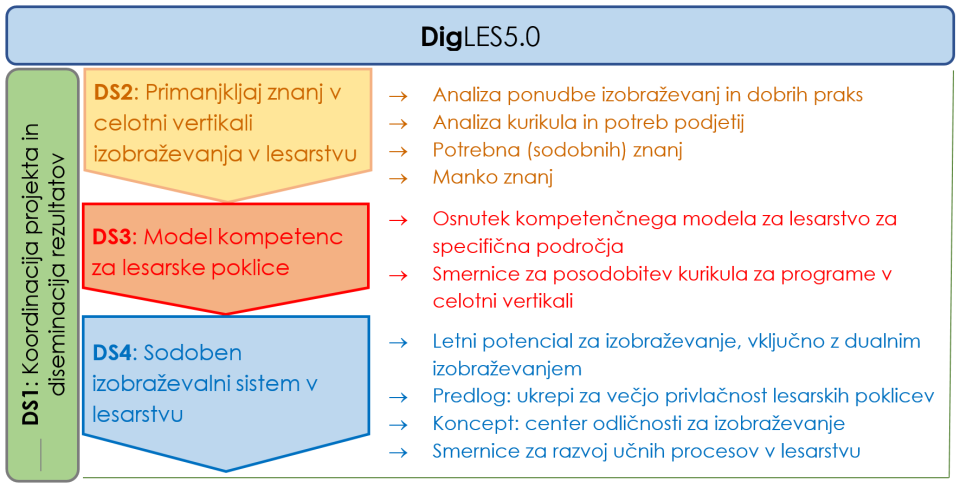Acronym
V4-2269
Department:
Department of wood science and technology
Type of project
ARIS projects
Type of project
CRP projects
Role
Lead
Duration
01.10.2022 - 30.09.2023
Total
€40,000.00
Project manager at BF
Kropivšek JožeResearch Organisation Partners
- Univerza v Ljubljani, Biotehniška fakulteta
- Zavod Lesarski grozd
- Lesarska šola Maribor
Abstract
Slovenia is one of the most forested countries in Europe. Therefore, wood is our domestic strategic raw material and has many advantages over other materials, which can be a good basis for the long-term development of Slovenia. Although Slovenia grows 4 m3 of wood per capita annually, only about 0.5 m3 is used for processing into products. There are several reasons for this. These include the broken forest wood chain, the (extensive) export of logs, the collapse of large wood companies with large processing capacities, mainly because of the low added value of their products, which does not allow investment in development and technology. Another important reason is the inadequacy and lack of personnel with appropriate modern competencies and knowledge. The increasing use of wood in the construction and furnishing of buildings and interiors, as well as the intensive replacement of artificial materials with wood and natural lignocellulosic materials in all areas of life, is increasing the volume of woodworking and processing, while generating products with high added value. Thus, the wood industry is becoming stronger and growing in every aspect, so the demand for human resources is also increasing (by 23% in the last two years). At the same time, the wood industry is being revitalized, mainly by the introduction of modern (sophisticated) production technologies and the digitalization of the business. To master these technologies and introduce modern (digital) business models, we need the right people. The lack of qualified personnel is becoming a burning issue and may jeopardize the further development of the industry. Therefore, for the development of wood processing industry, we need modern educational processes that implement programs that meet the needs of companies and will guide development in the coming years. In addition, we need to systematically promote the woodworking profession, motivate young people to learn (actively), and at the same time encourage companies to actively participate in the educational process, especially through the dual (apprenticeship) system, and provide young people with opportunities for a stimulating work environment. To this end, we will identify the missing knowledge, i.e. the needs and knowledge gaps in the entire vertical of education in the wood sector, which will then form the basis for elaborating the basis for the development of wood and furniture education. Based on this, we will develop scientific foundations for updating the existing curriculum, design a modern competency model for individual specific areas of woodworking, and develop curriculum guidelines for training and study programs across the vertical by incorporating these contents/competencies and focusing on the approach. Using examples of good practice, we will define the annual potential of training and create guidelines for the dual training model. To address the shortage of personnel, we will create a market analysis and a concept for the promotion of wood occupations. Finally, we will design a center of excellence for training in wood related occupations and create guidelines for modernizing learning processes, as well as evaluate the economic impact of renewing training of wood occupations.
Researchers
- link
The phases of the project and their realization
The work sections of the project are:
- WP1: Project coordination and dissemination of results
- WP2: Knowledge gap in the entire vertical of education in woodworking
- WP3: Competence model for woodworking professions
- WP4: Modern educational system in woodworking

